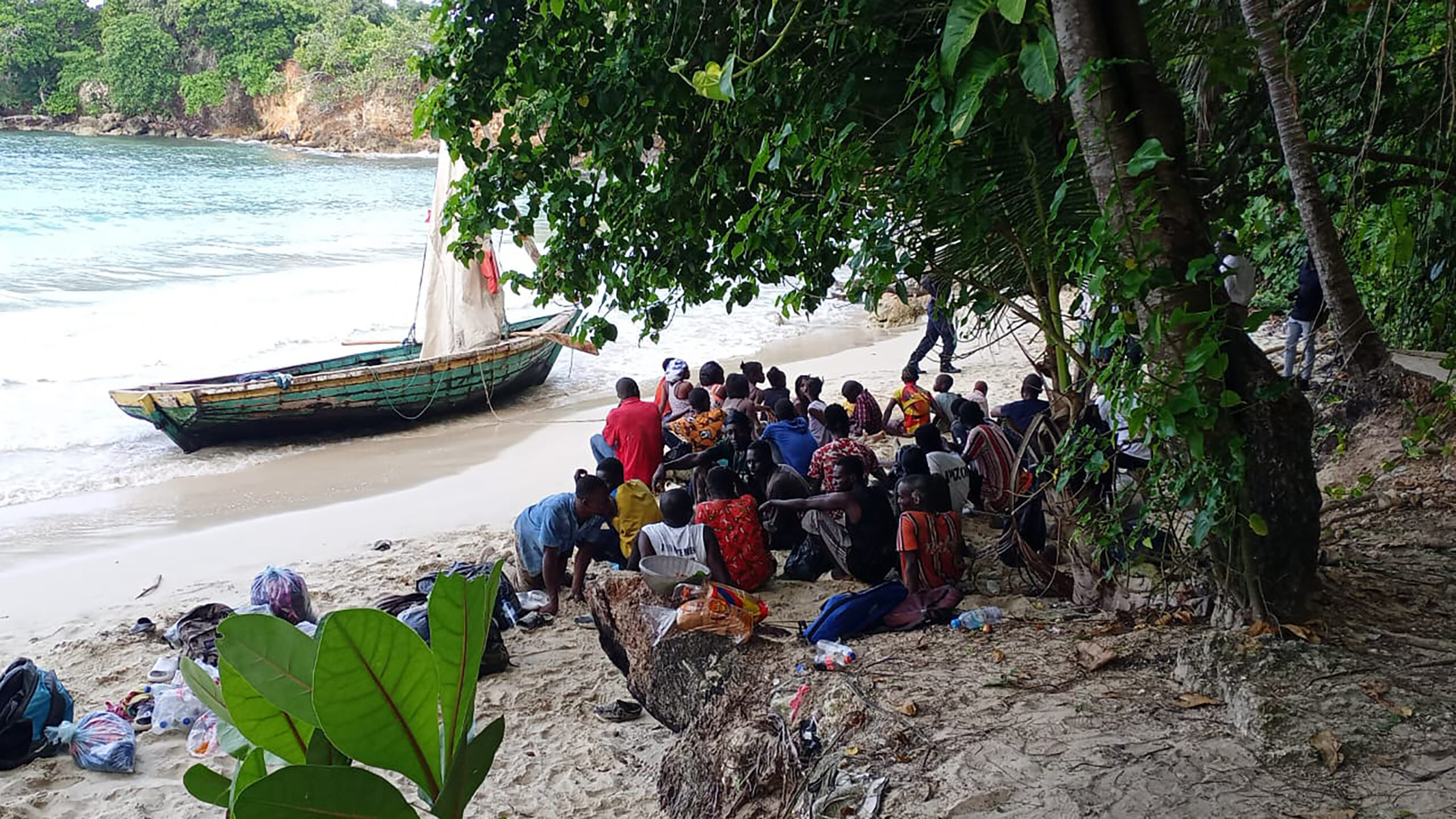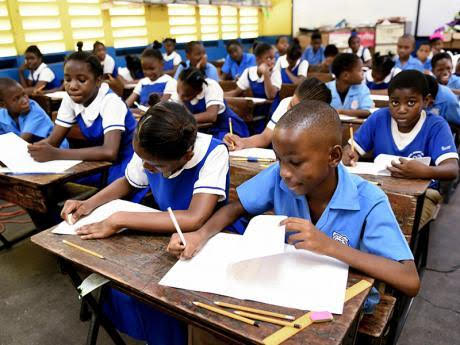
Jamaica’s treatment of Haitian refugees raises urgent critical questions about the nation’s moral compass and the potential cost of losing its own soul. As a usually proud Jamaican, I am deeply ashamed and profoundly concerned about the callousness exhibited by our authorities in handling the plight of the latest 36 desperate individuals who washed up on East Portland’s Long Bay Beach after two weeks at sea.
Their unimaginable suffering and deplorable at-sea and at-home conditions should evoke compassion from us all. Moreover, as a member of the Eastern Maroons of Moore Town ancestry I am acutely aware of the shared history and common bonds that connect us with the Haitian people, many of whom share similar family names due to our intertwined pasts.
As a born-again Christian, I cannot help but reflect on the teachings of our faith, which provide clear guidance on how we should treat those in need, especially refugees. The Bible offers timeless wisdom on this matter, emphasizing empathy, love, and hospitality towards strangers and those facing adversity. Allow me to spell out these Biblical precepts:
Old Testament Scriptures:
Exodus 22:21 (NIV): “Do not mistreat or oppress a foreigner, for you were foreigners (or refugees) in Egypt.”
Deuteronomy 10:18-19 (NIV): “He defends the cause of the fatherless and the widow, and loves the foreigner residing among you, giving them food and clothing. And you are to love those who are foreigners, for you yourselves were foreigners (or refugees) in Egypt.”
These Old Testament verses underscore the moral imperative of extending a helping hand to refugees and treating them with the same kindness and compassion we would expect for ourselves.
Similarly, the New Testament provides guidance on our Christian duty to care for those in need, including strangers and refugees. These verses echo the importance of compassion and assistance to those in need:
New Testament Scriptures:
Matthew 25:35-36 (NIV): “For I was hungry and you gave me something to eat, I was thirsty and you gave me something to drink, I was a stranger (or a refugee) and you invited me in, I needed clothes and you clothed me, I was sick and you looked after me, I was in prison and you came to visit me.”
Hebrews 13:2 (NIV): “Do not forget to show hospitality to strangers (or refugees), for by so doing some people have shown hospitality to angels without knowing it.”
It is disheartening to witness our country, which boasts one of the highest densities of Christian churches in the world, failing to live up to these fundamental principles of our faith. As a Christian nation led by individuals professing and schooled in Christianity, including leaders from various denominations such as Adventist Christianity, Baptist Christianity, Church of God, Pentecostal, Christian Brethren, Anglican, and Roman Catholic, we must urgently reflect upon our actions and align them with the teachings of the Bible.
Jamaica, as a primarily Monotheistic nation, must urgently reflect upon its actions and align them with the teachings of the Bible. Additionally, we should draw from the principles of compassion and justice found in various belief systems, such as Rastafari and Ethiopian Orthodox social teachings, Islamic principles, and socialist values. All of these advocate for the equitable and compassionate treatment of individuals, especially those facing adversity.
This situation is reminiscent of a ghastly, deliberate incident a few years ago when scores of homeless individuals in Montego Bay were reportedly tricked, scraped up, and dumped in a caustic bauxite processing factory’s mud lake in the dead of night, 70-odd miles away in St. Elizabeth. Both instances call into question the moral compass of our nation and the consciences of those within our faith community — such as our Heads of State, Government, Public Service, Municipalities, and Judiciary.
Are we beginning to flirt with Nazi nastiness?
I implore our churches, our leaders, and every Jamaican to heed the call of compassion, justice, and human dignity. Let us embrace the principles that underlie our faith, extend our hands to those in need, and demonstrate the true essence of love and solidarity towards those seeking refuge and a chance at a better life.
Beyond Monotheism, we can also find guidance in the principles of other belief systems. Hinduism, for example, promotes the concepts of ‘dharma’ and ‘vasudhaiva kutumbakam.’ ‘Dharma’ requires that we treat others as we would want to be treated, emphasizing our duties towards fellow human beings, including refugees. ‘Vasudhaiva kutumbakam,’ meaning ‘the world is one family,’ encourages us to help refugees irrespective of their differences from oneself, rejecting boundaries of possessions, nationality, ethnicity, and religion.
Here’s the thing: It is essential for Jamaica to reevaluate its treatment of refugees in light of both its Monotheistic heritage and the broader principles of compassion and justice espoused by various belief systems. We also need to realign ourselves with the international human rights conventions that we so readily spout and benefit from. Our nation’s moral compass should guide us towards a more compassionate and just approach to those seeking refuge on our shores, for our actions reflect not only on our government but also on the soul of our nation.
Footnote 1: Amid and despite this time of Jamaica’s ignominy, I am so inspired by the courage of journalist Alicia Smith of the Jamaica Observer, Attorney Malene Alleyne, and her Freedom Imaginaries, Attorney Dr. Marcus Goffe, and the very sensitive and persevering conscience of my old KC friend, the truly brilliant and ever empathic expert ICT engineer, Darien Francis
Footnote 2:
Here are just 18 family names that are commonly shared between Haitians and Eastern Jamaicans: Dupont, Pierre, Darien, Desir, Félix, Joseph(s), Lafleur, Auguste, Toussaint, Michel (Mitchel), Léger, Louis, Baptiste, César, Francis, Laurent, Laurence (Lawrence), and St. Louis. These surnames highlight the historical connections and shared ancestry between the two nations, reflecting the rich cultural tapestry that binds Haitians and Jamaicans together. Through a common heritage, these family names serve as a testament to the intertwined history and cultural exchange between Haiti and Jamaica, reinforcing the idea that we are more alike than different, despite geographical separation by 100 miles of sea — closer than St Vincent is to Barbados.
Footnote 3:
The distance between Port Morant, Saint Thomas Parish, Jamaica and Les Cayes, Sud Department, Haiti, calculated using the direction of the route on the map is less than 100 miles.
That is a major factor facilitating the linkage between Eastern Maroons and Haitians.



